Already days are getting shorter. While summer's send-off is always bittersweet, there's also reason to celebrate. It's harvest time—time to reap the bounty of farm and field, and few places offer more reason to celebrate that abundance than Ironbound Farm in Asbury, NJ.
Just 15 minutes or so across the Pennsylvania border from Easton, this 108-acre regenerative farm beckons with a craft cidery, farm-to-fork restaurant, weekend farm market—and purpose. Sample the unique, hand-crafted hard ciders or dine at the Ciderhouse and savor its exciting, bold, field-fresh cuisine. At the farm market, pick up some of the best locally sourced, organic foods you'll find anywhere to fill your winter larder.
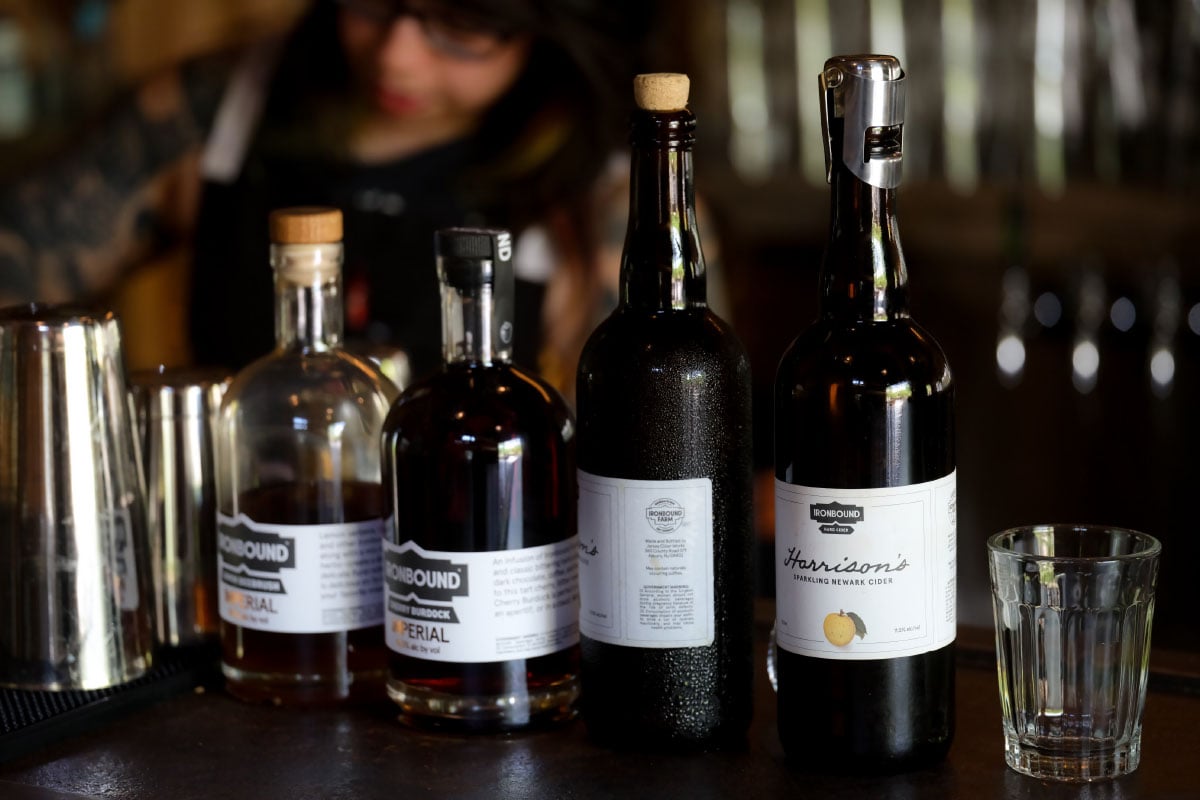
As if those weren't reason enough to cross the border, there's also this: Ironbound is quite simply just a cool place to hang out. It's a farm, after all, so it's rustic, casual and über-easygoing. A circa-1700s barn houses the cidery and its tasting room, and fields fan out in a velvet carpet of green. Outdoor dining spaces encourage reveling in pastoral views, and live music on weekends amps up the vibe that celebrates all things living in wholeness with the land.
The seed of Ironbound's story was planted about a decade ago when owner Charles Rosen set out to prove a for-profit company could successfully do business in ways that would build and benefit its community. (“Ironbound” comes from the working-class, multiethnic Newark neighborhood where his company was founded.) Obstacles to his original vision of workforce development for the most marginalized in Newark gradually evolved his purpose to a focus on farms as the heart of a new food system.
It's a vision that looks to the future yet finds roots in the past. When he bought the former King's Road Vineyard in 2015, the land had lain fallow for close to two decades. What's more, the soil had been depleted and damaged by chemical weed killers. Rosen and a crew cleared 50-plus acres of grape trellises and invasive species to begin healing the land for planting a 10,000-tree apple orchard.
But the story goes back even further—back to the days when the barn was built. Hard cider was the drink of choice for many in the 1700s and 1800s, since water wasn't safe to drink. And the hard cider produced in and around Newark was one of the best in those times, thanks to the Harrison apple, specially suited to cider making.
Fast-forward to the present. Even though the Harrison was considered lost to time (it's on Slow Food USA's Ark of Taste, a catalog of foods facing extinction), Rosen wanted to produce hard cider with a history. Working with “apple detectives and historians” for two years, he successfully brought back the fruit, and today it is, indeed, the foundation of Ironbound's hard ciders.
Making wine was never a consideration, despite the farm's previous identity. That's because making cider is more fun, says Ironbound's cidermaker Cameron Stark—who worked as a winemaker for 20 years. There's more opportunity for creativity, says Stark. He's not making a chardonnay for which there's a preconceived notion of taste, so “we can go all over the board with flavors and styles; we have more freedom.”
That freedom has yielded interesting hard cider flavors such as Devil's Harvest (infused with Pine Barrens cranberries and tart cherries) and Black Tea and Lemon (infused with farm-brewed tea and fresh organic citrus). Stark took cider-making to a new level with the cidery's Imperial selections. The four fortified hard ciders are mixed with apple brandy that stops fermentation, then infused with herbs and botanicals. The result? A beverage like vermouth or Italian amaro, good for sipping or used in a cocktail.
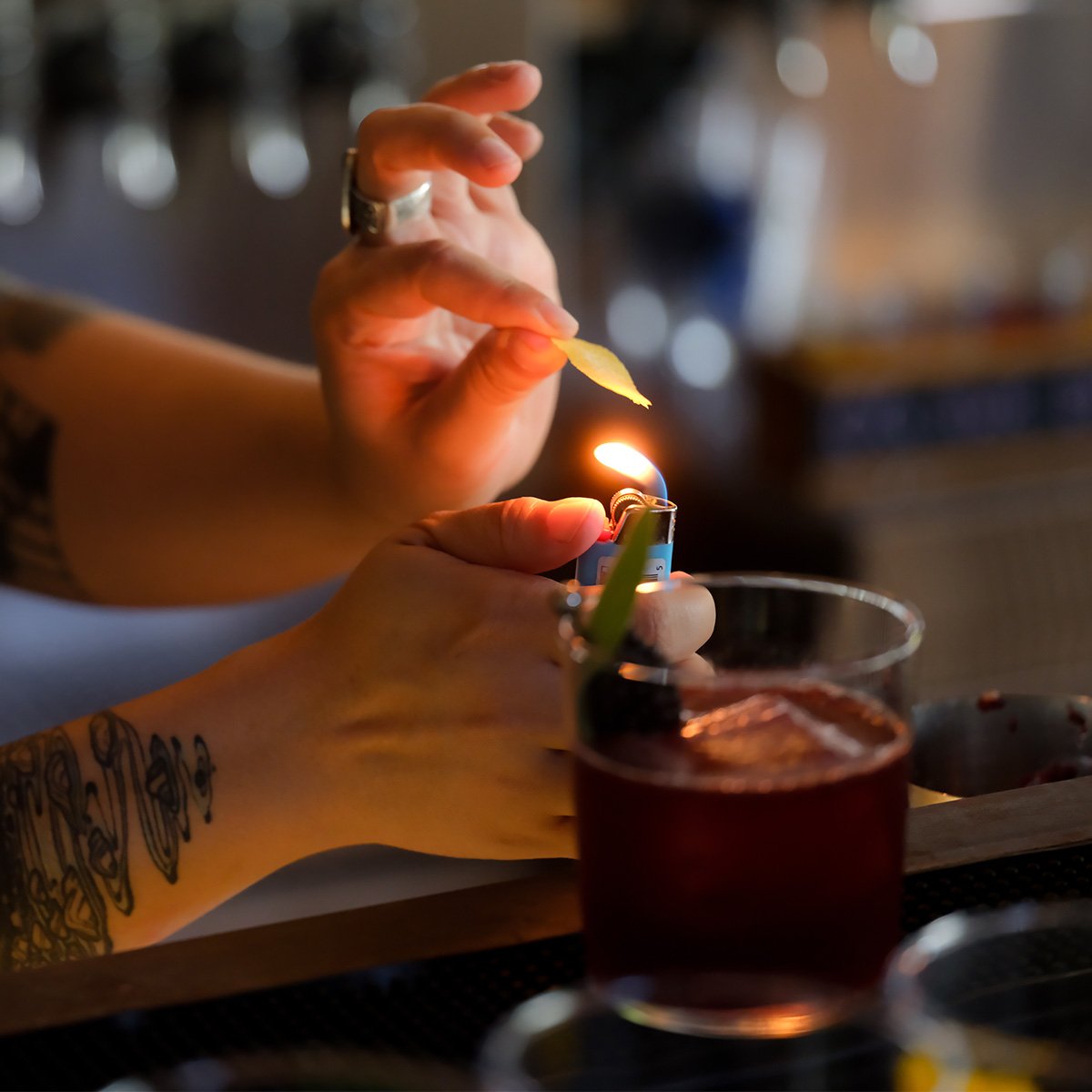
These unique ciders showcase Stark's creativity. For example, Cherry Burdock, infused with burdock root along with farm-grown botanicals, offers up aromatics of cherry, apple blossoms and exotic spice. And Lemon Beebrush, an aperitif cider infused with the flowering plant also known as lemon verbena, imparts notes of green apple, tea, bittersweet chocolate, pie spice and lemonade.
In a bramble-style cocktail created by beverage director Danielle Nguyen, the Lemon Beebrush—mixed with muddled blackberries, lemon juice and fresh sage—adds depth and richness to the bright notes of this garnet drink that gleams like a polished gem.
Ironbound's gluten-free ciders have no preservatives, or added sugars or sulfites. And botanicals hail from the farm or its partner producers and growers. The innovation that drives the ciders and cocktails along with their farm-fresh ingredients makes these drinks one-of-a-kind. Therein lies their “artisan” character, says Nguyen.
That artisan theme runs through the food as well. Ciderhouse cuisine is boldly creative, influenced by the tastes of many different cultures and bursting with the peak flavor that comes only from food harvested just hours before it's served. Alec Gioseffi, executive chef and farm director, says 80 percent of the produce used in the food comes straight from the farm, the remainder from neighboring producers and growers.
Consider the panzanella. This Italian bread salad features tomatoes, peaches, bronze fennel and viola flowers from Ironbound. Blackberries, corn and burrata hail from partners, and the crusty bread cubes come from sourdough loaves baked on-site with heritage grains from a neighboring producer. What a stellar study of seasonal color, taste and textural contrast.
Roasted eggplant—topped with oat berries or groats, feta, blackberries, tahini and honey, and fresh mint—features sweet notes balanced by briny feta and tahini's nutty sesame overtones.
New Jersey day boat scallops explode with flavor. Plated with fingers of kaju masala, an Indian cashew-based curry sauce, garnishes of umi plum and roasted red pepper jam add artistic touches of color. Rolls of paper-thin slices of piel de sapo, an heirloom melon originating in Spain, bring clean counterpoint to the curry's heat and fiery cauliflower marinated in harissa paste and cider.
A yakitori-inspired plate of skewered pieces of grilled heritage pork loin and ribeye are ever-so-crisped outside and so moist inside. These are partnered with New Jersey-grown black and tan rice, oi muchim (spicy Korean cucumber salad) and Napa cabbage kimchi.
Brown butter ice cream, made on-site with milk from a local partner, melts in rivulets over warm cornbread skillet cake, topped with local blackberry compote, in an individual cast-iron pan. Need I say more?
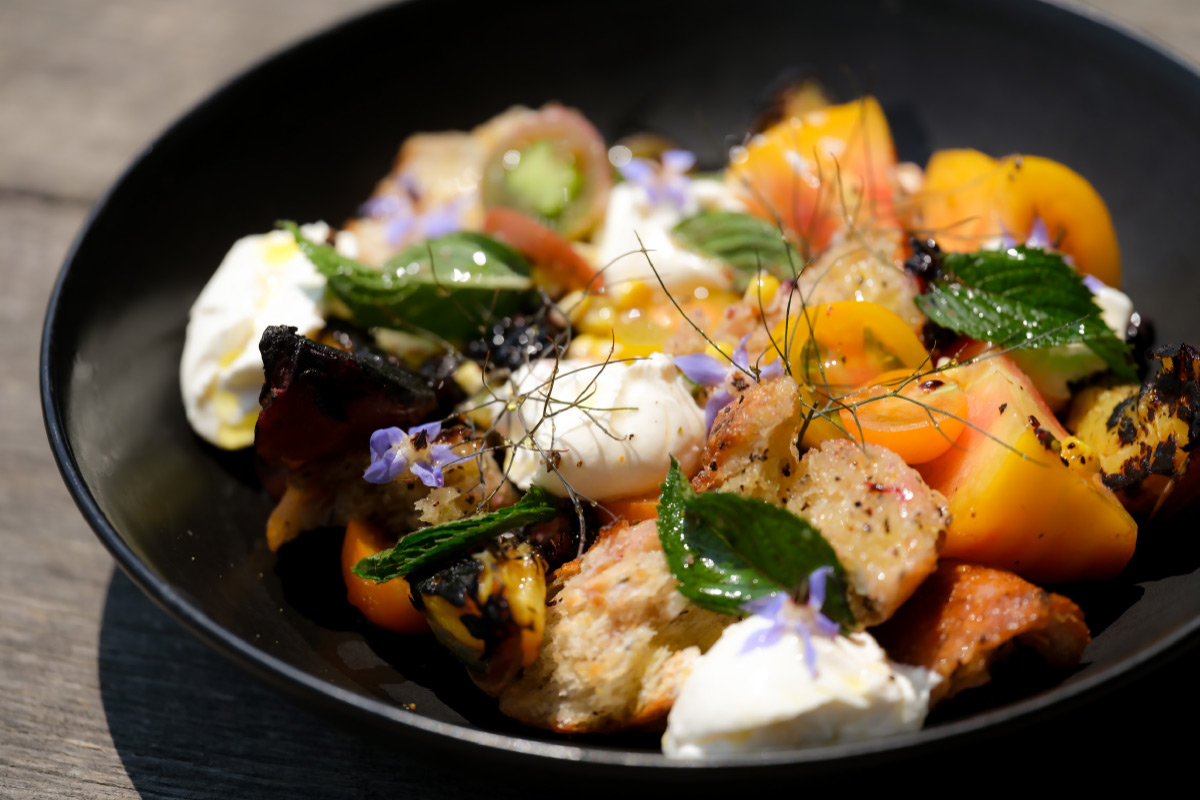
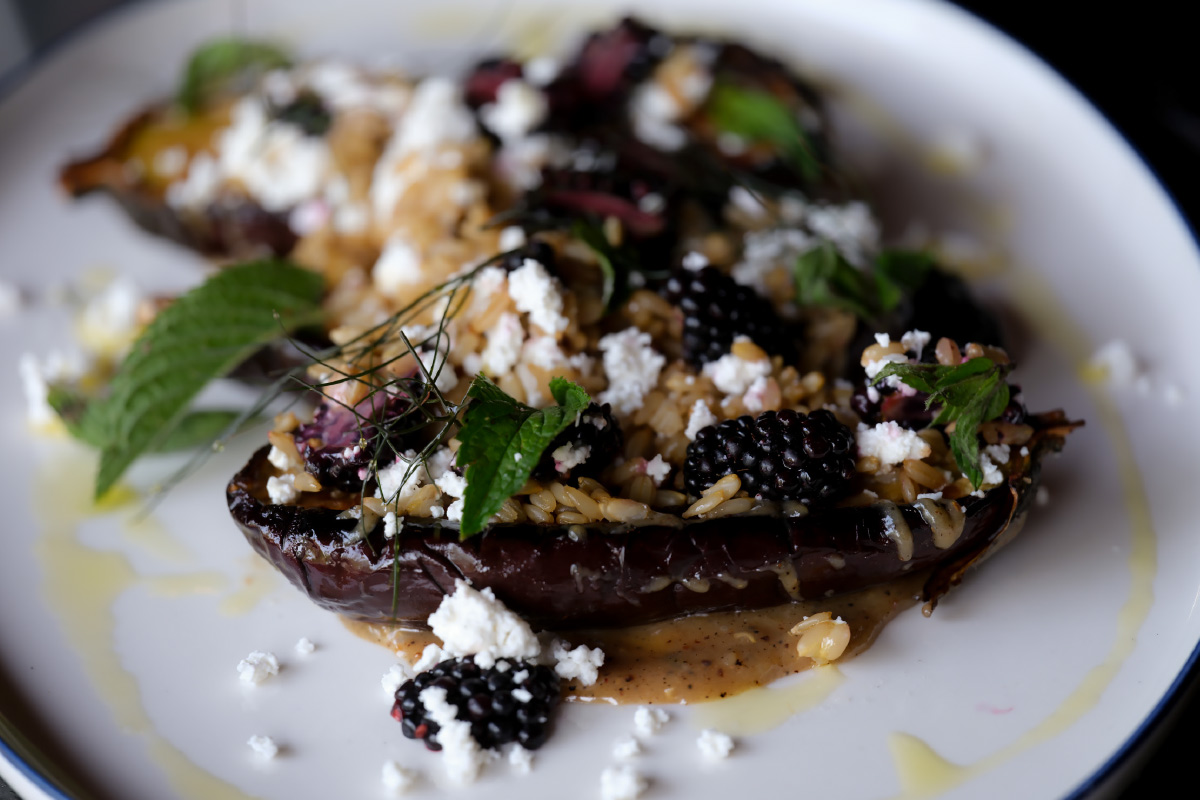
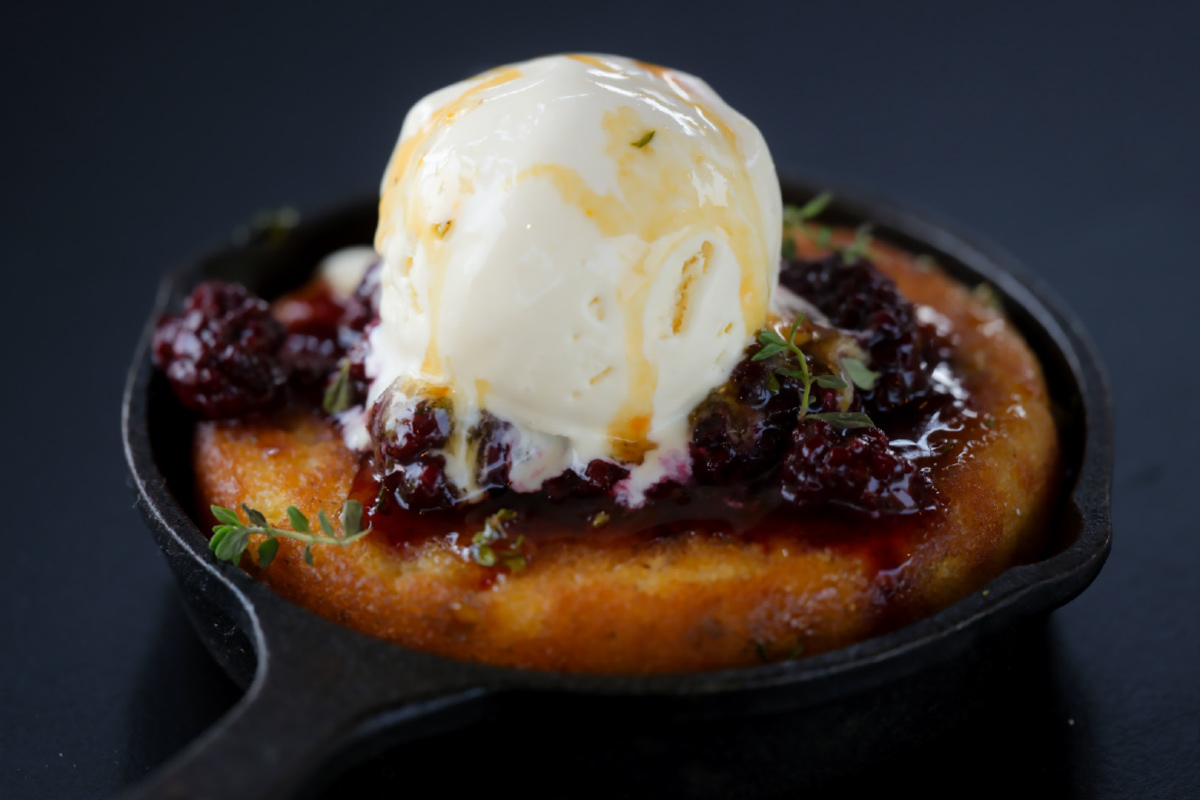
From May to November, Ciderhouse food is cooked in the outdoor kitchen with its centerpiece motherfire—an open-fire grill inspired by Argentinian pit cooking. Its 25-plus-foot chimney towers over the open dining areas, underscoring the rustic sensibility here. From November to April, when there's no outdoor dining, food trucks provide cooking space.
Farm and food are inextricably linked at Ironbound. The eight chefs start their shifts by gathering fresh ingredients—eggs, herbs, edible flowers and more. And Gioseffi designs the menu to feature foods and ingredients from the farm and its partners. In winter when he develops the next crop plan, it's based on the Ciderhouse menu he'll write for the coming growing season.
Everything that Ironbound Farm is today began with healing the soil. Cover cropping put nitrogen back to build organic life, which created a soil ecosystem. That ecosystem set the stage for integrated farming where chickens live in the orchard rows and, along with turkeys, ducks and geese, help control pests. Goats and sheep take care of weed management, and the heritage-breed pigs root and till the fields.
“If you ask me what I grow,” says Rosen, “I would say soil.” Nutrients in soil are tied to flavor; more microorganisms in soil increase nutrients, and more nutrients in food equal more flavor, he says.
Along with growing soil, Rosen is growing community. He's developing partnerships by supporting people who are farming the right way, he says, and he's building a new marketplace where like-minded farmers and producers connect and collaborate.
Gioseffi says the food at Ciderhouse intentionally features ingredients from, at minimum, seven to 10 partners in Ironbound's food hub region. The Farm Market offers partners' products as well. This collaboration of local growers and producers is the heart of Rosen's vision of a new food system: “My successes should not come at your expense; my success should come with yours.”
This is what we believe in, says Rosen: “Healing the land. Healing people. Building community together.” A regenerative purpose, for sure.
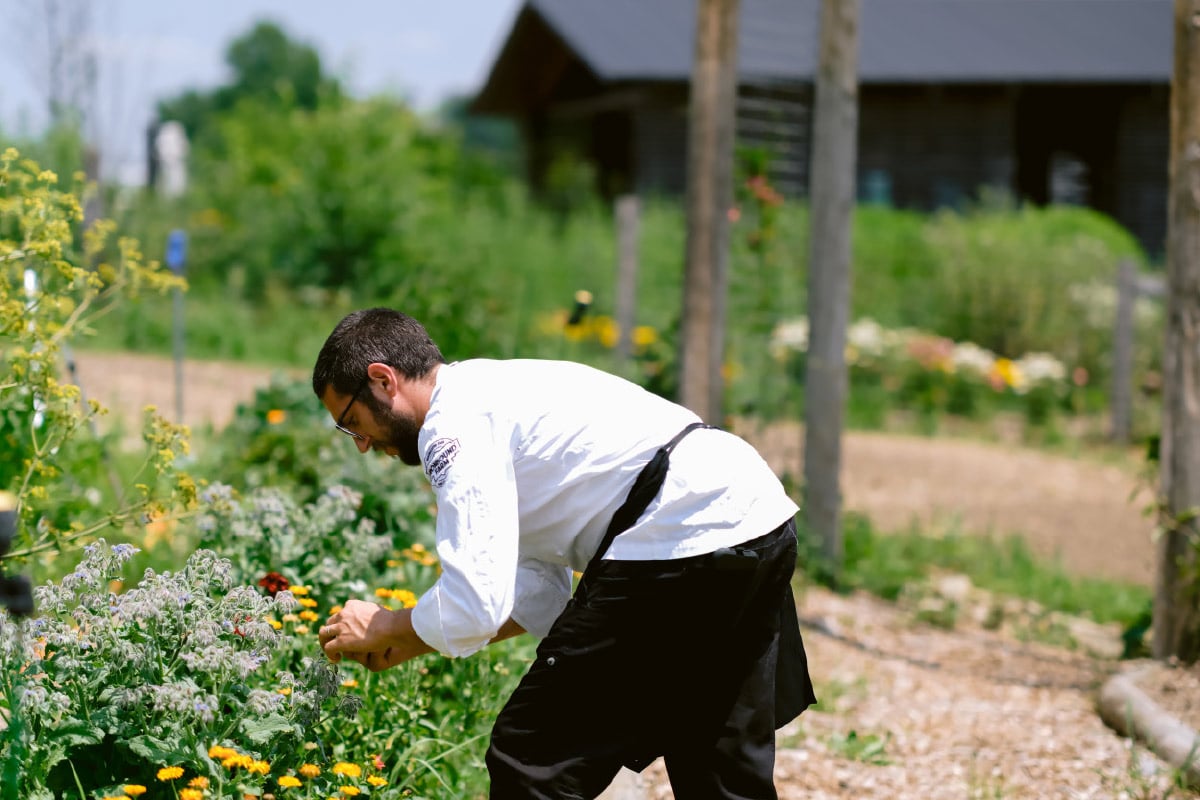
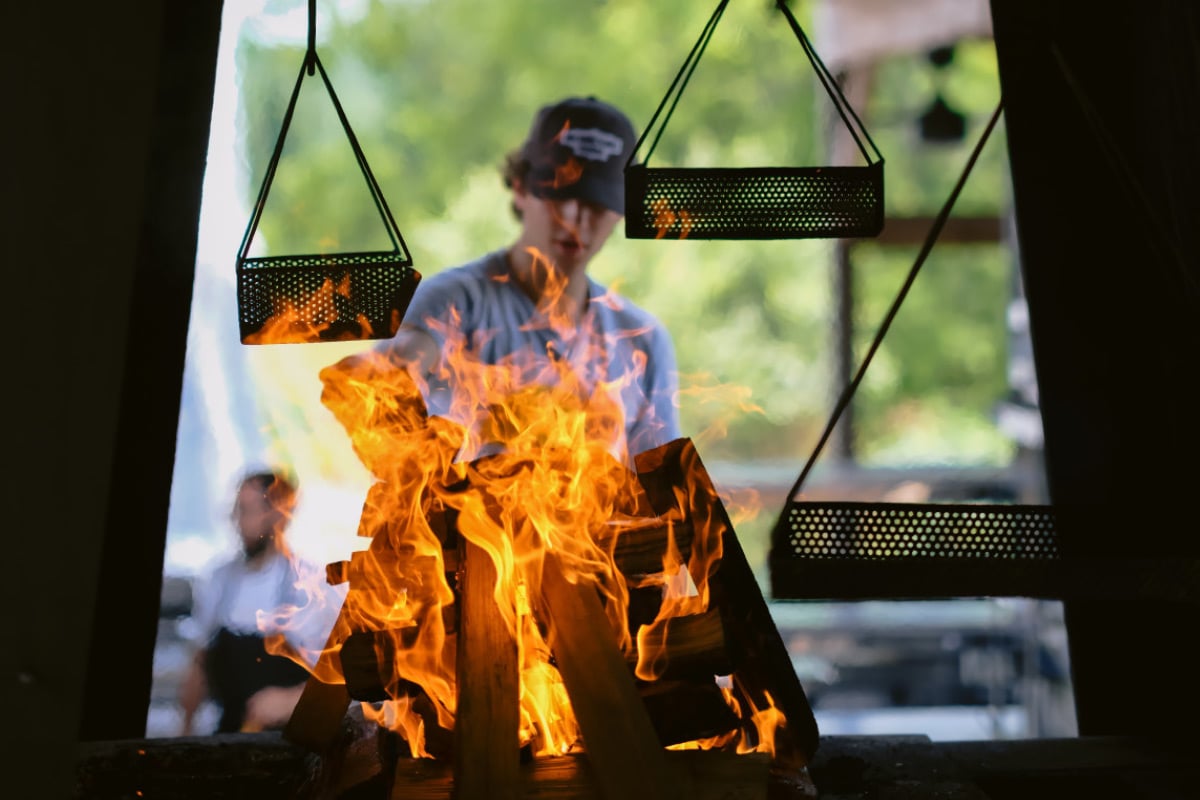
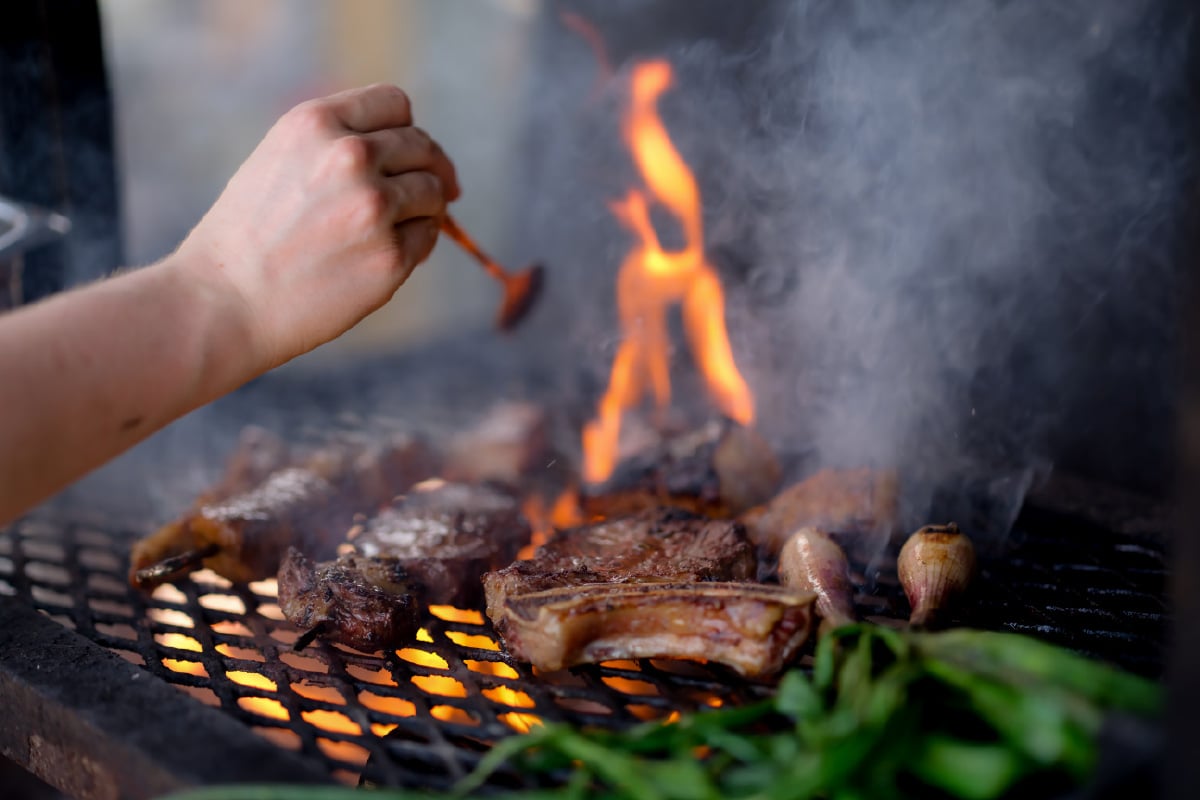
Ironbound Farm and Ciderhouse
360 County Road 579, Asbury, NJ | 908.940.4115 | ironboundhardcider.com
Hours
Ciderhouse Food & Beverage Service Hours: Thurs. & Fri.: 4–10 p.m. (Kitchen closes 8:30 p.m.); Sat.: noon–10 p.m. (Kitchen closes 8:30 p.m.); Sun.: noon–9 p.m. (Kitchen closes at 7:30 p.m.)
To-Go Cider Sales: Tues.–Thurs.: 10 a.m.–5 p.m. (Tasting Room)
Farm Market: Fri.–Sun.: 10 a.m.–7 p.m.
Parking:
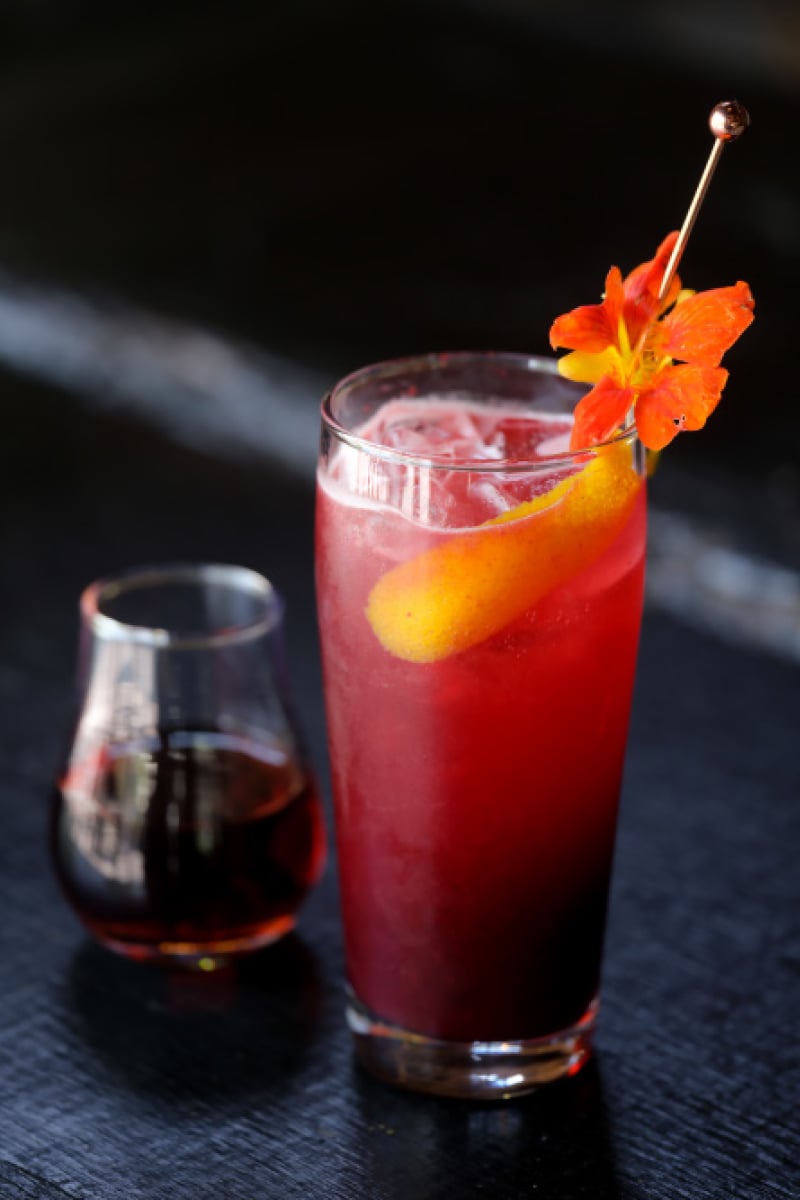
Abundant
Reservations:
Reservations required Thurs.; reservations encouraged Fri.–Sun.
What to Order:
Don't miss the panzanella. It's a flavor party on a plate. Anything with the hyper-local produce is a treat for tired taste buds. The farm's heritage pork is a revelation. Sample the earthy Berry-Beet Sparkler mocktail made with beet shrub—like a garden in a glass. Sip fortified Cider Royal (pure Harrison apple hard cider aged in toasted oak), or toast the harvest with Harrison's Sparkling Pét-Nat that drinks like rustic champagne. Here's to fall!
Published as “Inside Dish” in the September 2023 edition of Lehigh Valley Style magazine.















